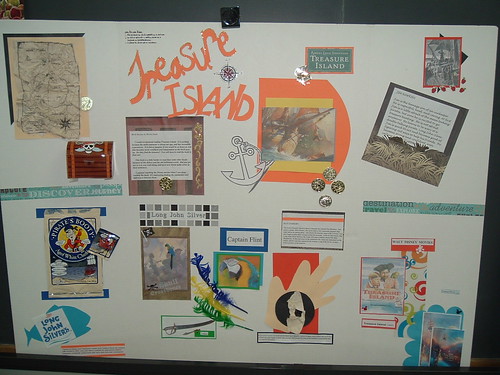We’re in the midst of a unit on Parts of Speech (hey, did you know yesterday was Grammar Day? I didn’t, even though we were working on grammar all day. The video — March Forth — is from The Grammar Girl). We’ve been working on nouns, verbs, adjective, adverbs, pronouns, prepositions, interjections (!) and conjunctions for about two weeks and now they are into a project in which they color-code various parts of speech in their own writing. (See the project handout)

I can’t say they are having fun with it. Isolating words and trying to determine what role they play in context of a sentence is difficult work for sixth graders (heck, and for most adults), but I do hope that by using their own writing, it is a bit more authentic of an activity.
Of course, who am I kidding? Knowing Parts of Speech does not make you a better writer. Still, this is one of those topics that the curriculum requires and on some level, I do believe they need to have a grasp on what role words are playing in their writing. The Parts of Speech unit follows our work around the Origin of Words, and we will next move into Sentence Structure, and then on to Paragraph Writing, and then to Essays. I’ve tried to make our work a logical progression of sorts, so that students see how their longer writing is built out of smaller pieces.
The projects are due next week. We’ll see how they do.
Peace (that’s a noun, right?),
Kevin

